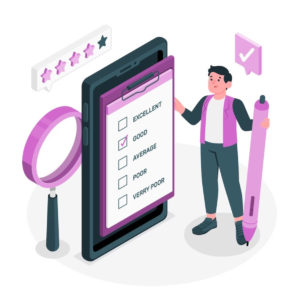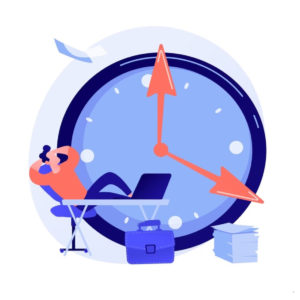
08 Sep Common Mistakes in Employee Self-Assessments
Common Mistakes in Employee Self-Assessments: A Guide to Avoiding Pitfalls
Employee self-assessments are a valuable component of any performance review process, offering benefits for both the individual and the organization. However, the exercise can be fraught with pitfalls that can diminish its effectiveness. This article aims to highlight common mistakes made during employee self-assessments and provides suggestions for avoiding them.
Overestimating or Underestimating Performance
One of the most frequent mistakes is inaccurately gauging one’s performance. Overestimation can make you appear arrogant, while underestimation can sell you short. Strive for an accurate, balanced view of your performance by using data and specific examples to support your claims.
Lack of Preparation
An effective self-assessment requires adequate preparation. Failing to gather relevant data, documents, or feedback ahead of time can result in a shallow or incomplete evaluation. Spend time collecting evidence of your accomplishments and challenges to present a well-rounded picture of your performance.
Vagueness and Ambiguity
Another common mistake is failing to be specific. General statements like “I work hard” or “I need to improve” are too vague to offer any real insight. Use concrete examples and data to demonstrate your achievements and identify areas for improvement.
Also Read: Our guide on open communication and its benefits.
Focusing Solely on Negatives or Positives
Some employees only focus on their strengths and avoid mentioning weaknesses, while others do the opposite. A balanced self-assessment should cover both positives and negatives. Acknowledging weaknesses doesn’t make you less competent; it shows you are aware and willing to improve.
Ignoring Soft Skills
Many employees concentrate solely on hard, technical skills and overlook soft skills such as communication, teamwork, and emotional intelligence. However, soft skills are equally important and can often differentiate you in the workplace.
Failure to Align with Organizational Goals
Your self-assessment should not only focus on personal achievements but also reflect how you contribute to the overall goals of the organization. Neglecting to make this connection can make you seem disengaged from the company’s success.
Being Defensive About Feedback
Receiving criticism is never easy, but it’s an important part of growth. Being defensive or dismissive of constructive feedback can portray you as resistant to improvement.
Overlooking Accomplishments
Sometimes employees are so focused on what needs improvement that they overlook their accomplishments. Recognizing your achievements boosts your self-confidence and helps you understand your strengths better.
Neglecting Future Plans
A common mistake is to treat the self-assessment as a look back without considering the future. Use this opportunity to set new goals and outline a plan for achieving them, aligned with both your career aspirations and organizational objectives.
Not Reviewing Previous Assessments
Failing to review past self-assessments can lead to repeated mistakes and missed opportunities for growth. Make it a habit to look back at your previous evaluations to track your progress and update your objectives.
Conclusion
Avoiding these common mistakes can significantly enhance the value of your employee self-assessment. The process is not merely a formality but a powerful tool for personal and professional development. Approach it with the care, preparation, and introspection it deserves to maximize its benefits and contribute meaningfully to your career and your organization.
Also Read: Research on self-evaluation by National Library of Medicine.




